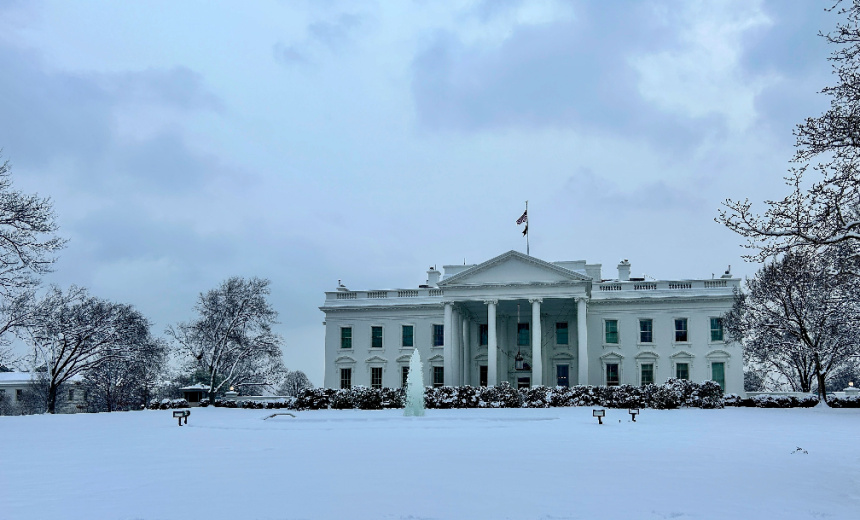Artificial Intelligence & Machine Learning
,
Encryption & Key Management
,
Next-Generation Technologies & Secure Development
Administration Officials Say Executive Order is ‘Pretty Bipartisan’

An executive order set for publication Thursday during the final countdown of the Biden administration aims to use federal buying power as a main lever of coaxing the private sector into better cybersecurity.
See Also: AI Surge Drives a 40-1 Ratio of Machine-to-Human Identities
The order draws heavily on the federal government’s status as the world’s largest single buyer of goods and services to impose a slew of cybersecurity requirements onto technology vendors such as providing proof that they use secure development practices. Cloud computing vendors will have to “clearly spell out how customers can secure their use of cloud products,” according to a White House fact sheet. Federal agencies starting in 2027 will only be able to buy internet of things devices carrying a seal of approval from a Federal Communications Commission cybersecurity labeling program launched earlier this month (see: White House Launches US Cyber Trust Mark for IoT Devices).
“The goal is to make it costlier and harder for China, Russia, Iran and ransomware criminals to hack, and to also signal that America means businesses when it comes to protecting our businesses and our citizens,” Deputy National Security Advisor Anne Neuberger said during a Wednesday media briefing.
Adopting language that appeared tailor-made for the incoming Trump administration’s putative focus on cost-cutting, Neuberger said the order is designed “to help streamline federal programs, cut bureaucracy and fraud in federal programs and accelerate the use of state-of-the-art secure digital identities for Americans.”
Referencing concerns that the incoming Trump administration will undo whatever the Biden administration approves in its waning days, Neuberger said the order focuses on “pretty bipartisan goals.” Biden cybersecurity policy officials have not engaged directly with Trump team, she said, since the president elect has yet to announce many key cyber appointments.
Administration officials campaigned throughout Biden’s term for secure coding practices in efforts that have included soliciting pledges from the tech industry to embed stronger security measures into product design and to take up memory-safe programming languages. With the executive order, the Biden administration can stop persuading and start mandating – at least for segment of the tech industry selling products into federal agencies.
Requirements for government-procured space systems will be even more strenuous, the fact sheet states, with companies having to demonstrating their use of secure hardware practices as well as secure software development.
The order additionally strengthens the government’s ability to levy sanctions against cyber criminals and ransomware attackers targeting hospitals and businesses. It also promotes digital identity documents like mobile drivers licenses, which the White House said will help reduce identity fraud. The order launches a pilot to give Americans an early warning about potential fraudsters accessing their public benefits or payments.
To prepare for post-quantum cryptographic attacks, federal agencies will also be required to enable quantum-resistant key establishment within their networks to help protect government communications from being recorded now for future decryption. It establishes a public-private partnership that aims to deploy AI technologies for cyber defense in critical infrastructure across the energy sector.
